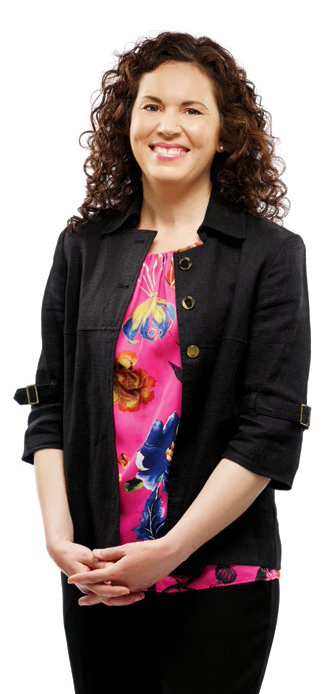Share this page
Hard and soft skills are integral to professional success. The Chair highlights the importance of such skills in regulated professions.
By Angela De Palma, OCT
@angdepalma
Photo: Matthew Plexman

Throughout my career in education, I’ve had the good fortune of taking on a variety of roles: French as a Second Language teacher, English as a Second Language teacher, classroom teacher and Special Education teacher. Each position had its different rewards and challenges, yet collectively they have all influenced my personal and professional growth. Perhaps this is because children, while demonstrating unique needs, remain children nonetheless. Even though some of the geographic and demographic environments in which I’ve taught have been diverse — from middle-class suburbs to inner-city neighbourhoods to expatriate communities — my students have always, to varying degrees and in different ways, demonstrated curiosity, creativity and a sense of adventure.
I hope they would agree that I too, as both teacher and learner (because I learned from my students and colleagues daily), exhibited similar qualities regardless of the instructional role I assumed.
The skills I have drawn upon throughout my teaching career have remained largely constant. Admittedly, pedagogy shifts with new research and deeper understanding about how children learn best. Corresponding teaching practices reflect such movements. However, the broad competencies required by the teaching profession — “hard” or “technical” skills paired with “soft” or “non-technical” skills — still hold.
Last spring, a presentation given at a conference I attended highlighted the importance of the combination of such skills in regulated professions. The session resonated with me because as an Ontario Certified Teacher, I recognize how teaching requires a forever-growing list of specific content knowledge to navigate the profession successfully. Curriculum, health and safety guidelines, 21st-century learning, mental health and well-being are just a few examples. While technical knowledge contributes to the performance of “specialized tasks,” non-technical skills are equally important to a teacher.
In fact, conduct some online sleuthing of what are considered the most sought after workplace skills, and you’ll find a list of non-technical proficiencies. Communication, flexibility, coaching, collaboration, prioritizing and situation awareness, for example, are regarded as integral to professional success. Teachers apply these soft skills in classrooms, meeting rooms, gymnasiums and schoolyards. As mentor, facilitator, coach, adviser and partner in a child’s learning, they know that non-technical skills matter; they serve to nurture the trusting relationships between teachers and the vast, and often complex, membership of a school community.
While the conference presenter drew upon terminology generally applicable to the spectrum of regulated professions, my mind turned to the professional standards established by the Ontario College of Teachers that speak to the practice of Ontario Certified Teachers. The Standards of Practice for the Teaching Profession and the Ethical Standards for the Teaching Profession outline the knowledge, skills and values of teaching, and encompass the technical and non-technical skills unique to the work of teachers in this province. Like changes in teaching practices, the standards have also adjusted over time to better align with the profession. However, they remain a collective vision for a role considered instrumental in the lives of children.
Call the standards a framework, a common language for teachers, or aspirational skills and principles: I see them as forming the genetic code of the teaching profession. This perspective might seem a little more monumental than that taken by promoters of technical skills and non-technical skills, but, I would argue, deservedly so.
